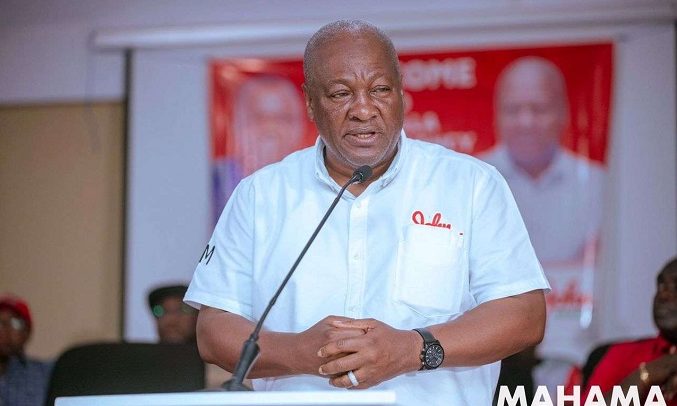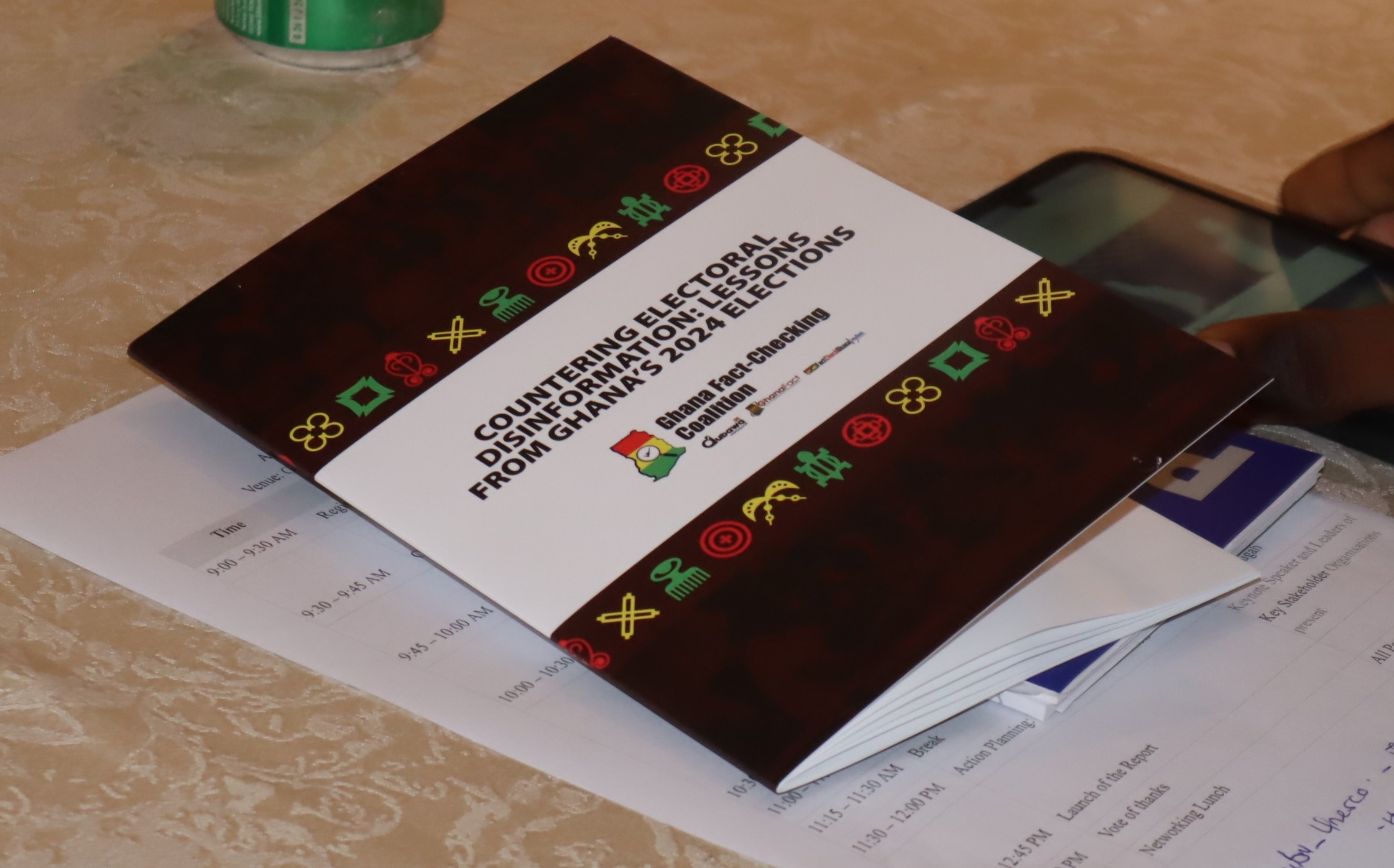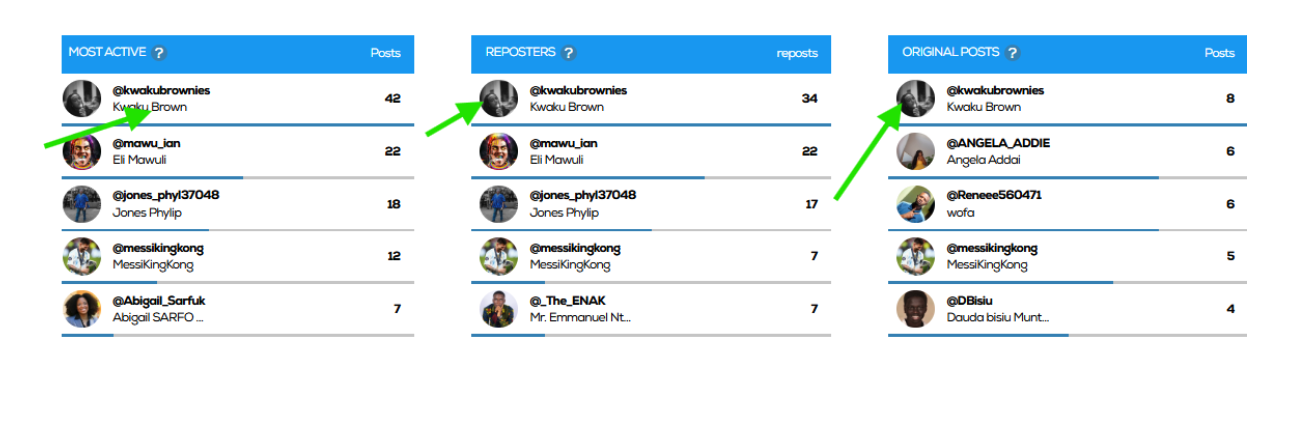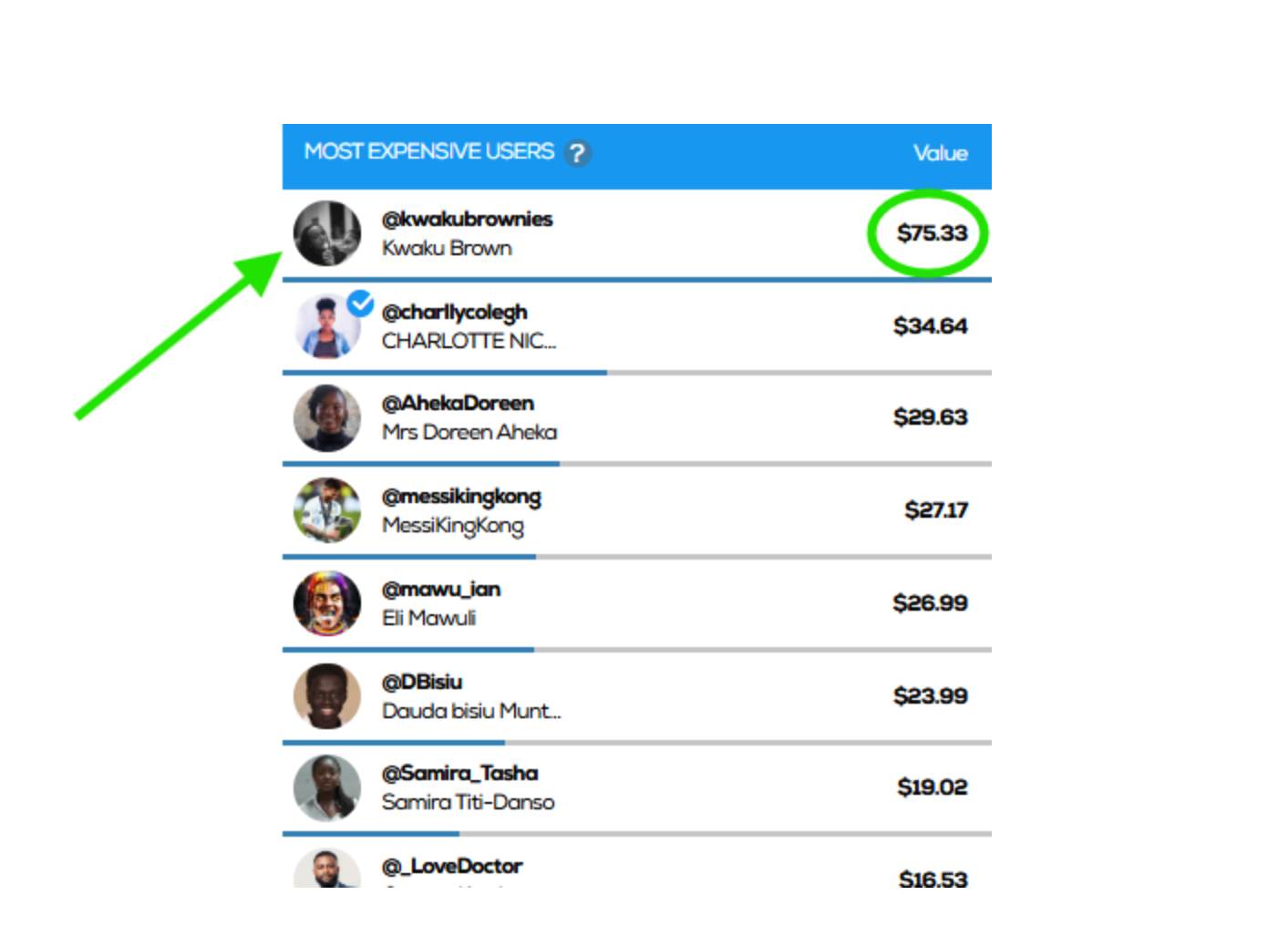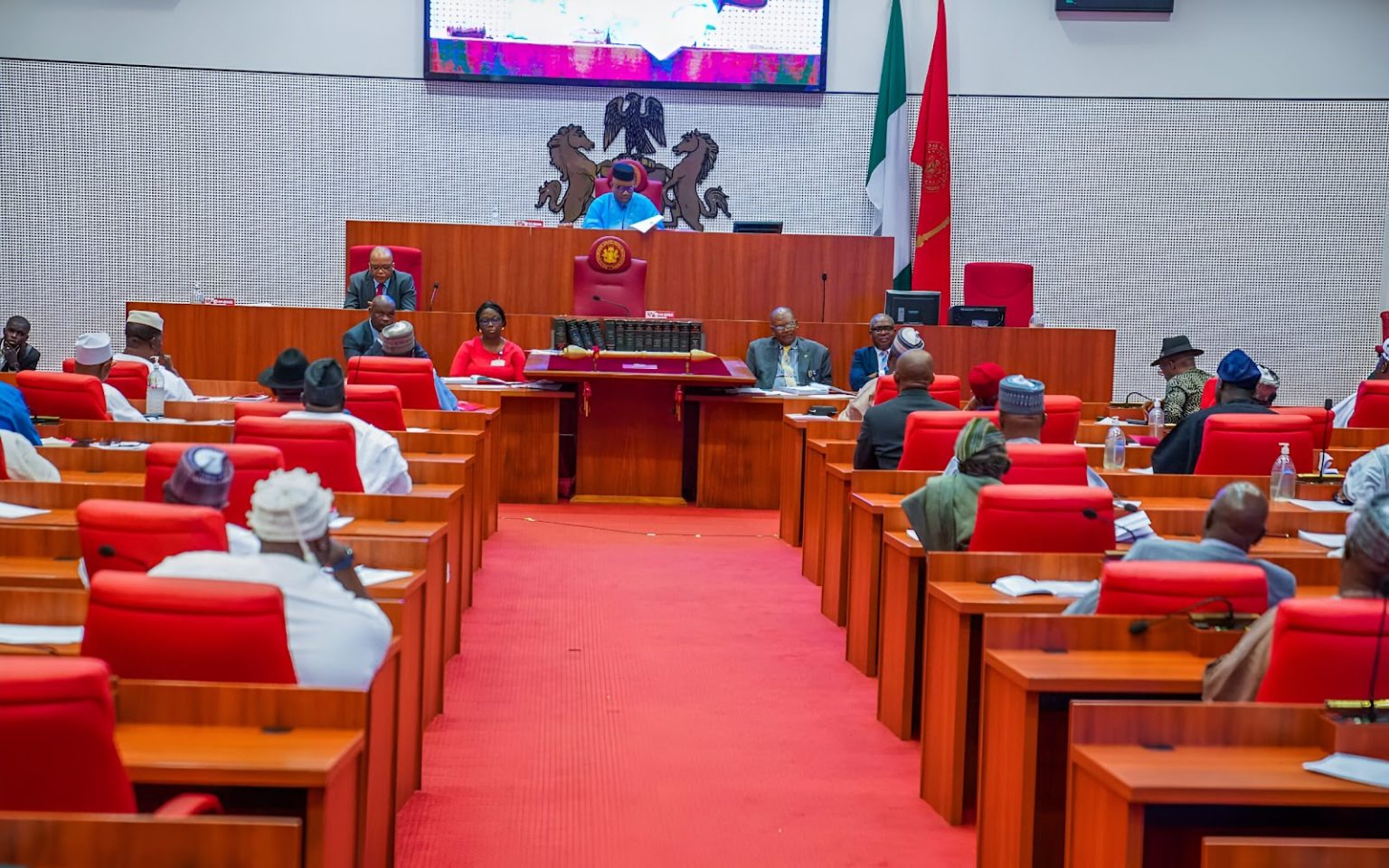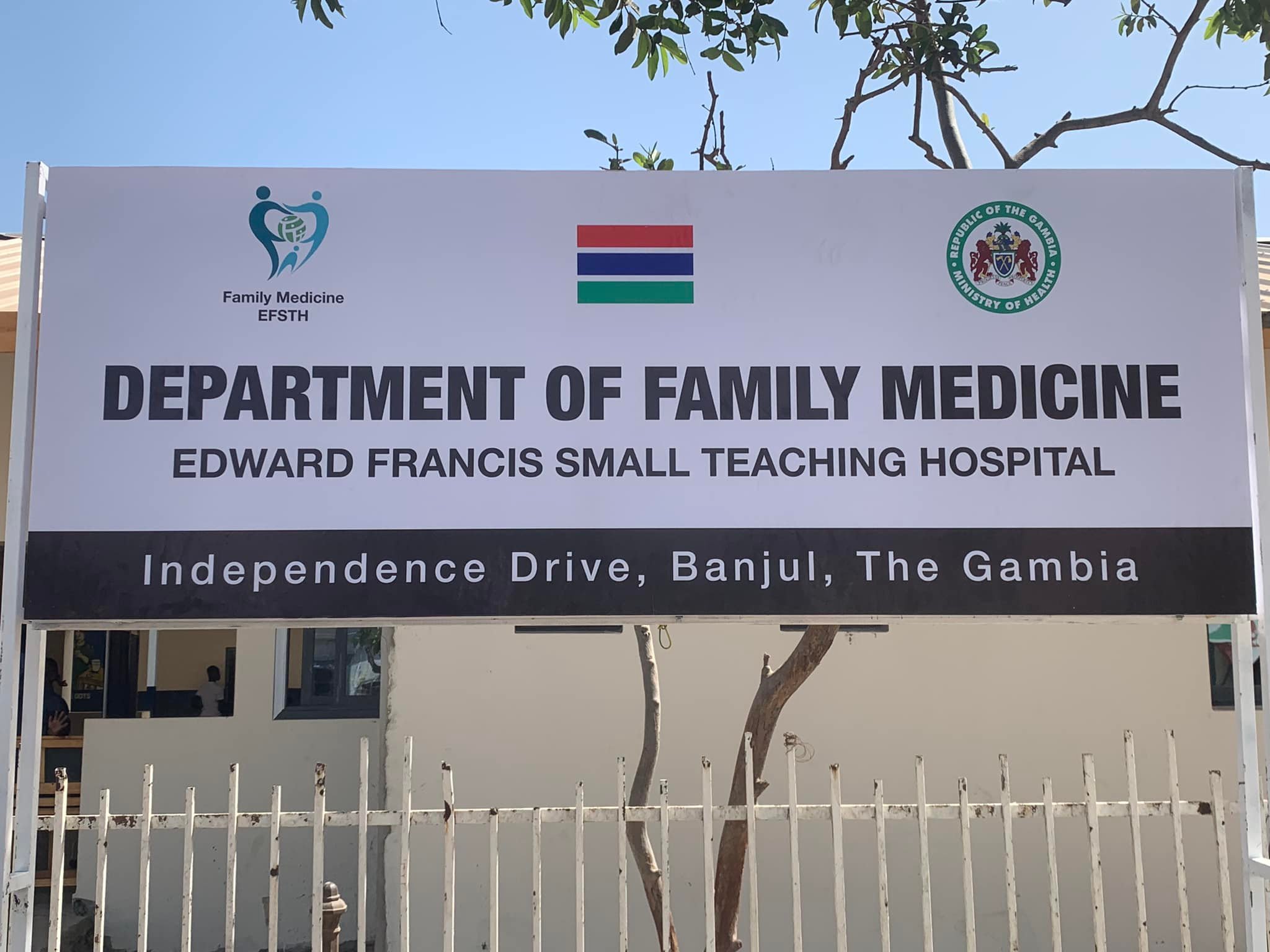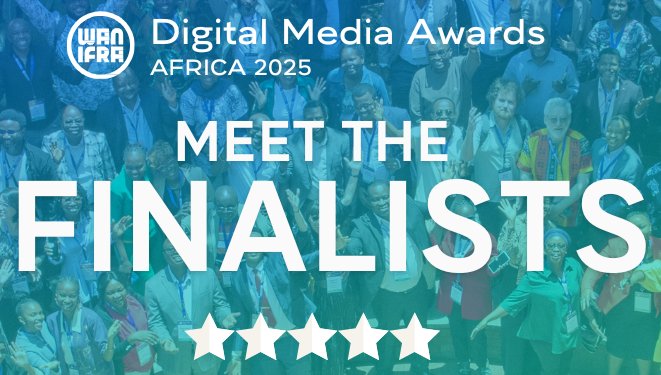The Ghana Fact-Checking Coalition investigate Pro-NPP X accounts spreading hate and false claims against Presidential Candidate of NDC, John Mahama.
Explanation: On X (formerly Twitter), a coordinated network of accounts is driving hashtags such as: #IncompetentMahama, #FailedMahama, #1TouchForBawumia and #BawumiaForPresident.
These accounts are spreading harmful disinformation targeting John Dramani Mahama, the Presidential candidate of the National Democratic Congress (NDC). For example, the lead account at the centre of this campaign, Kwaku Brown (@kwakubrownies), alleged that Martin Amidu accused John Mahama of being “the father of all corruption” in the Airbus scandal. In another instance, the account claimed that Mahama sold his Dubai hotels to a former Minister of Lands and Natural Resources. Both claims have been fact-checked by the Ghana Fact-Checking Coalition and found false (see here and here).
We continue monitoring these hashtags for harmful content related to the elections.
A screenshot from Tweetbinder shows Kwaku Brown (@kwakubrownies) as the originator of the related hashtags spreading disinformation on X
The network analysis visualization below highlights how reposting activity flows. At the center is “Kwaku Brown,” whose content is frequently shared by users like “Angela Addai” and “Mr Emmanuel Ntow.” The hierarchical structure shows Kwaku Brown as a hub, with secondary contributors amplifying messages to peripheral users. This layered design helps disinformation spread widely, creating the illusion of grassroots support.
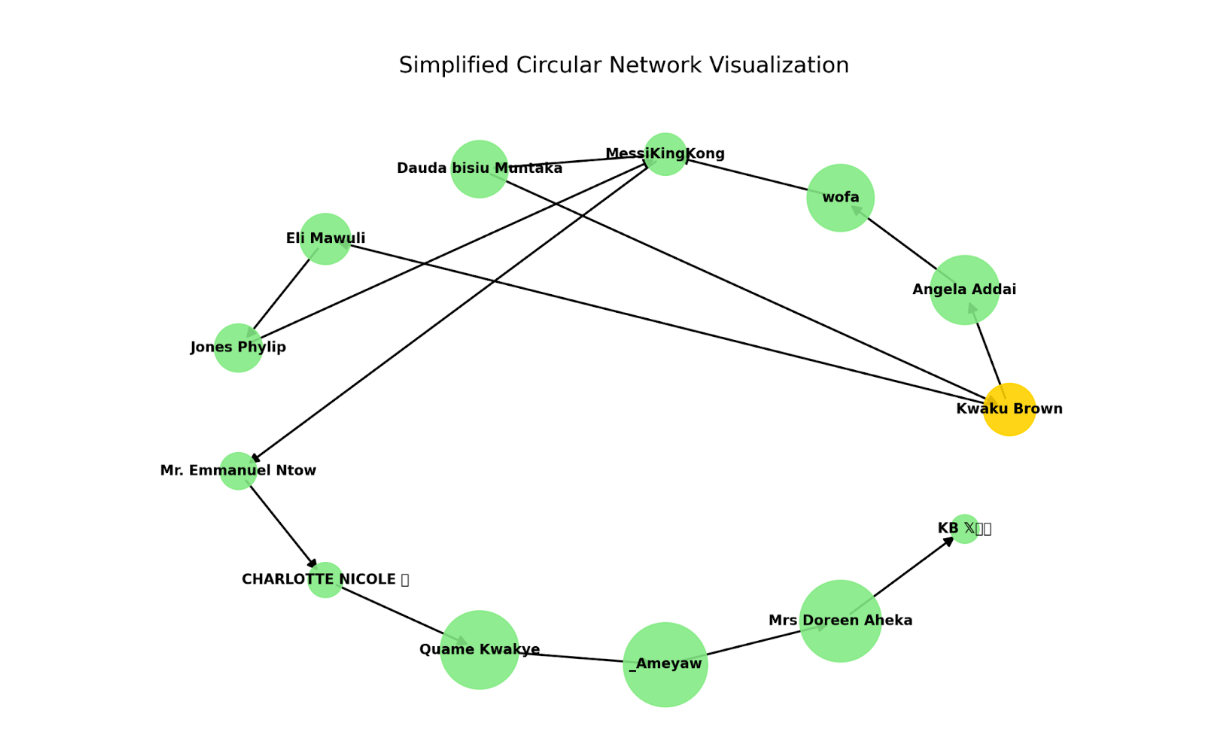
DATA SHEET: kwakubrownies
A Network analysis of handles based on the collected data from Tweetbinder spread disinformation around the Hashtags with Kwaku Brown at the start and centre of it.
“Disinformation by individuals may be ignorable, but when there’s a pattern of high-frequency coordination, it becomes critical to track and counter,” says Lateef Sanni, a communications strategist monitoring social media during elections.
Sentiment Analysis of Key Posts
Using Instant Data Scraper, we extracted Kwaku Brown’s posts between December 5th and December 7th—the crucial days surrounding the election. The data, including tweets, user profiles, and hashtags, underwent sentiment analysis in Python. Results revealed an overwhelming pattern of negative and misleading narratives targeting Mahama, contrasted with positive messaging supporting Bawumia.
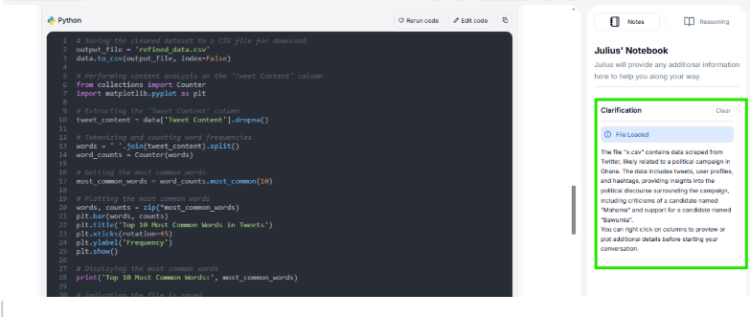
The sentiment analysis visualization above provides evidence of the deliberate attempt to sway political discourse through falsehoods and coordinated amplification.
“The opinions of people with influence are taken seriously, and their statements—especially if false—can arouse chaos and tensions,” warns Phillip Anjorin, a disinformation expert.
Broader Implications
The GFC, launched on December 4th to counter harmful narratives, has already debunked nearly 60 false claims. According to Kwaku Krobea Asante, coordinator of the GFC, organized disinformation threatens democracy and election integrity:
“These campaigns mislead voters and create an illusion of widespread support for certain candidates. The damage they cause can shape election outcomes and erode public trust.”
The problem isn’t confined to human actors. Just days before the elections, Rest of the World uncovered a network of 171 bot accounts using AI-generated posts to meddle in the election process. While X has policies against such activities, enforcement remains a challenge.
“For the first time, social media is playing a decisive role in Ghana’s elections,” says Evans Aziamor-Mensah, a Ghanaian journalist. “Bots and disinformation campaigns are reshaping voter perceptions, and platforms must do more to counter these threats.”
A Call to Action
The exposure of this network highlights the need for urgent intervention. Social media platforms like X must strengthen policies to detect and curb coordinated disinformation campaigns. Fact-checkers also need tools to identify the root sources of disinformation to efficiently counter it.
As Ghana navigates its electoral process, the stakes are high. Disinformation threatens not just the candidates but the integrity of democracy itself. Platforms, policymakers, and the public must collaborate to safeguard the truth and ensure fair elections.
This report is part of the work of the Ghana Fact-Checking Coalition’s Election 2024 coverage.

